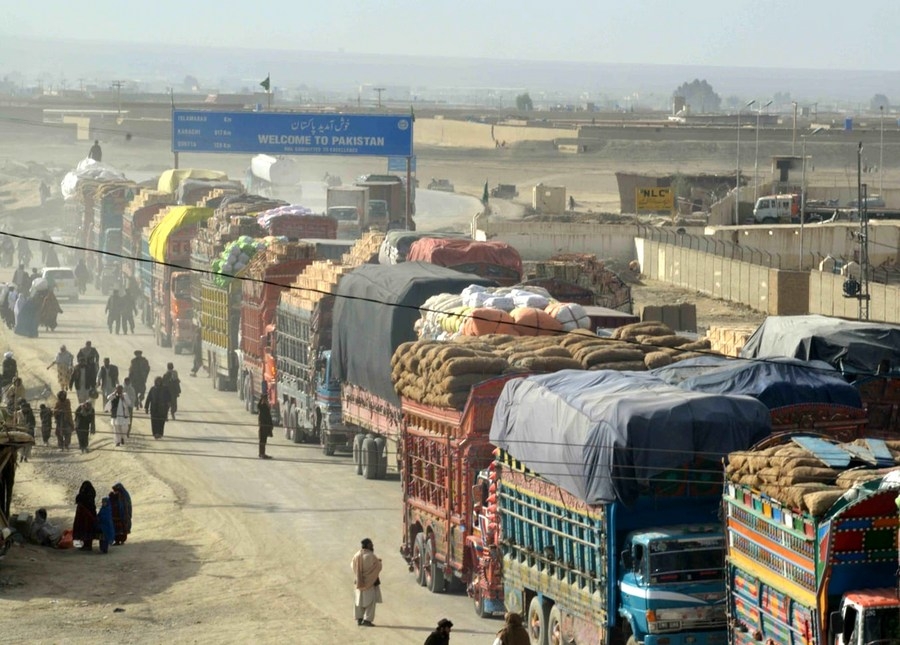The Shanghai Cooperation Organisation (SCO) held its annual summit on 3-4 July. Member states attended the SCO yearly summit and SCO Plus meeting in Astana, Kazakhstan. There Pakistan’s PM Shehbaz Sharif held a bilateral meeting with Russian President Vladimir Putin aiming to boost trade relations between the two countries. Therein Pak PM proposed Barter trade with Russia citing the reason to overcome banking restrictions.
What is Barter trade?
Barter trade is the most ancient form of trade to exist between human beings, that is the exchange of goods without any currency medium. The parties determine the value of the goods to be exchanged, which is based on the need and knowledge of the goods.
In the post-modern era, there are several instances of Barter trade between economies, to boost diplomatic relations, sanction restrictions and logistic roadblocks. Some of these instances are;
- India-Bangladesh Textile and Fertilizer Exchange (2015): India and Bangladesh signed a barter deal that involved the exchange of Indian textiles for Bangladeshi fertilizer which not only bolstered the textile industry in India but also addressed the shortage of fertilizer in Bangladesh.
- Venezuela-Cuba Oil for Medical Services (2000s): Venezuela and Cuba entered into an agreement where Venezuela supplied oil to Cuba in return for the services of Cuban medical professionals which provided Venezuela with much-needed healthcare services while giving Cuba a steady supply of oil.
- The U.S.-Soviet Wheat Deal in 1972 is a classic example where the U.S. agreed to sell wheat to the Soviet Union in exchange for a variety of Soviet goods and services, easing tensions during the Cold War.
- More recently, India and Iran have engaged in a barter-like system where India imports Iranian oil and pays for it by allowing Iran to purchase Indian goods, circumventing U.S. Sanctions.
But how relevant is Pakistan Barter Trade with Russia in today’s time?
Apart from the proposal to Russia, the Barter trade is something not new for Pakistan. It had a trade deal with Iran in 2012 exchanging wheat for Iron ore. However, in recent years this deal faded out due to its domestic wheat production deficit. Last year in June it approved and ironed out its policy for barter trade with Afghanistan, Iran and Russia and in early July this year, it proposed a barter deal with Russia. But this also hasn’t been able to take off.
And there lies the fundamental problem with Pakistan in this mode of trade. Barter often involves complex negotiations and requires a deep understanding of the comparative advantages of each nation. Each case above highlights the strategic importance of barter in international trade, demonstrating how nations can leverage their unique resources and capabilities to mutual benefit. But in Pakistan’s case, it has lost its leverage due to its unstable political climate and ever-depleting economic condition.
For half a decade Pakistan has been undergoing an economic crisis and currently, the country is on the verge of default. Handouts from the IMF are barely keeping the economy together. In April 2024, the State Bank of Pakistan announced that it had $13.8 billion in its foreign exchange reserves, depicting the condition of the economic growth of Pakistan. In June 2024, the inflation rate in Pakistan was measured at 12.6%, an acceleration from 11.8% in May 2024. Apart from these it also has been importing food and oil for its daily requirements. Wheat which was produced in surplus and was one of the main exports, is now imported in Pakistan from Russia.
In such conditions, Pakistan has next to nothing to offer at a negotiation table. Any kind of barter deal with the country could be only imagined upon good diplomatic relations, as it’ll be an almost one-sided deal where Pakistan will be dependent upon the other country.
Russia due to its ongoing war with Ukraine is burdened with heavy Western sanctions. To diversify its oil buyers, it has last year sold crude oil to Pakistan. Historically Pakistan has had poor diplomatic relations with Russia as the country was a close ally to the West, especially America. Pakistan’s involvement in the Afghan war and the creation of Afghan Mujahedeen, played a hand in the Soviet’s defeat in Kabul and ultimately the fall of the Soviet Union.
As of now, there is no official confirmation from the Russian side about this deal. Russian state-owned media has on the other hand openly ridiculed this idea. Though from outside Pak administrators want this move to be a display of innovation, upon closer inspection it is clear that the deal comes from a place of desperation.

